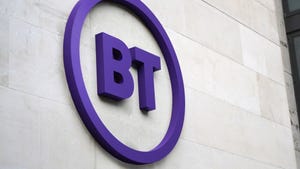UK operator Vodafone and software vendor Mavenir say they have successfully tested a small cell OpenRAN mast using containerised software.
December 23, 2021

UK operator Vodafone and software vendor Mavenir say they have successfully tested a small cell OpenRAN mast using containerised software.
Vodafone says it tested voice and data over an OpenRAN mast designed to provide dedicated mobile coverage for a workplace, using ‘containerised’ software which is supposed to allow businesses to customise the mast specifically towards their purposes.
If you don’t know what containerised software is, Vodafone described it in the release as this:
“When software is containerised, it and all the various dependent files that it needs to run are neatly gathered into a single bundle. This bundle or container can then be installed, used and removed much more easily than software without containerisation. In contrast, when you install a typical computer program on a home PC, the files can be scattered across many locations, making uninstalling more difficult. Containerised software avoids this issue.”
Apparently it also plays well when different hardware configurations are in play, offering some measure of standardisation when communicating to hardware. Vodafone points out this is particularly relevant in OpenRAN projects – which is a good point since OpenRAN is practically defined by the ability to bring hardware from different providers together to create a mast.
Only the mast’s radio transmitter and receiver were controlled with containerised software in this case, but Vodafone says in future other software could be containerised as well, providing more flexibility and customisability.
“OpenRAN is opening doors to simplified and intuitive connectivity solutions. For our wider network deployment strategy, OpenRAN is enabling us to work with a wider pool of suppliers and to avoid vendor lock-in scenarios that might prevent us from taking advantage of the latest innovations,” said Andrea Dona, Vodafone’s UK Chief Network Officer.
“The same could be said for enterprise connectivity solutions. From the moment Open RAN is deployed in an office environment, customers are no-longer locked into a single upgrade path. Working alongside Vodafone, customers can be more flexible in how connectivity solutions are adapted and upgraded as demands evolve in the future.”
Mavenir said in a similar update that moving forward, it and Vodafone will focus on finalising the packaging and automation of the solution before beginning trials with selected customers.
Vodafone is the most active UK operator in the OpenRAN arena. Last month it was one of the major players behind a manifesto which was pitched as a rallying cry for Europe to win leadership of the ecosystem. It stated that if European firms don’t properly get their hands around it, firms from elsewhere in the world would. Leading to a situation which “could put €15.6 billion of industry revenues, and (Europe’s) global influence, at risk”.
As such, Vodafone is clearly keen to highlight even incremental progress towards actualisation of OpenRAN in Europe.
About the Author(s)
You May Also Like








.png?width=300&auto=webp&quality=80&disable=upscale)


_1.jpg?width=300&auto=webp&quality=80&disable=upscale)


.png?width=800&auto=webp&quality=80&disable=upscale)